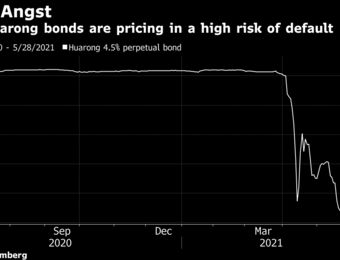China tells Alibaba to sell off media assets in tech crackdown
Mark Sweney and Helen Davidson, 16 March 2021
Beijing has ordered e-commerce company Alibaba to sell off media assets including Hong Kong’s South China Morning Post (SCMP) as the Chinese government looks to crack down on the growing public influence held by the country’s sprawling tech conglomerates.
Alibaba has become the lightning rod in the crackdown on big tech after founder Jack Ma, one of China’s most popular, outspoken and wealthiest entrepreneurs, delivered a blunt speech last year criticising national regulators that reportedly infuriated the president, Xi Jinping.
Following the comments, Chinese regulators blocked the $34bn stock market flotation of Alibaba online payments subsidiary Ant Group, which would have been the biggest share offering in history, and Ma disappeared from the public eye for three months. Last week, it emerged that regulators are reportedly preparing to hit Alibaba with a record fine in excess of $975m over anti-competitive practices.
China’s protectionist business regime, which shuts out foreign companies including Google and Netflix, has enabled a group of homegrown conglomerates to flourish as the country looks to build the next wave of global tech champions to challenge Silicon Valley.
Beijing has struggled to maintain control over their activities and wider influence with Alibaba’s media empire expanding to buy SCMP, Hong Kong’s premier English-language newspaper, in 2016 and holding stakes in social network Weibo, video streaming service Youku and Yicai Media Group, one of the country’s most influential news outlets.
“What is interesting here is that the Chinese Communist party has done a good job of cultivating huge tech giants, national champions,” said Jamie MacEwan, a senior media analyst at Enders Analysis. “But there has always been a split under the surface between those who want to encourage the great tech leap forward and a growing unease among those worried about these huge companies and the big public figures at the head of them, like Ma, outgrowing the patronage of the [Chinese communist] party.”
Read Full Article
 Congrats to America’s finance bros for finally getting their reward from the Chinese Communist Party. But surely, after obediently lobbying in favor of opening up to Beijing for decades, Wall Street deserved more than it received.
Congrats to America’s finance bros for finally getting their reward from the Chinese Communist Party. But surely, after obediently lobbying in favor of opening up to Beijing for decades, Wall Street deserved more than it received.
 China’s finance ministry is considering a proposal to transfer its shares in China Huarong Asset Management Co. and three other bad-debt managers to a new holding company modeled after the one that owns the government’s stakes in state-run banks, according to a person familiar with the matter.
China’s finance ministry is considering a proposal to transfer its shares in China Huarong Asset Management Co. and three other bad-debt managers to a new holding company modeled after the one that owns the government’s stakes in state-run banks, according to a person familiar with the matter. After the collapse of Lehman Brothers Holdings Inc., the Big Three rating companies were blamed for their enabling roles in the subprime mortgage crisis. Troubled securitized products would not have been marketed and sold without their seal of investment-grade approval. In fact, investors relied on their ratings, often blindly.
After the collapse of Lehman Brothers Holdings Inc., the Big Three rating companies were blamed for their enabling roles in the subprime mortgage crisis. Troubled securitized products would not have been marketed and sold without their seal of investment-grade approval. In fact, investors relied on their ratings, often blindly. Being “tough on China” is politically popular in Washington these days, and Biden has come out of the gate swinging against Beijing. But “being tough” isn’t a policy and reflexively applying it to China doesn’t serve U.S. interests. A logical and realistic approach to Beijing, however, can.
Being “tough on China” is politically popular in Washington these days, and Biden has come out of the gate swinging against Beijing. But “being tough” isn’t a policy and reflexively applying it to China doesn’t serve U.S. interests. A logical and realistic approach to Beijing, however, can.